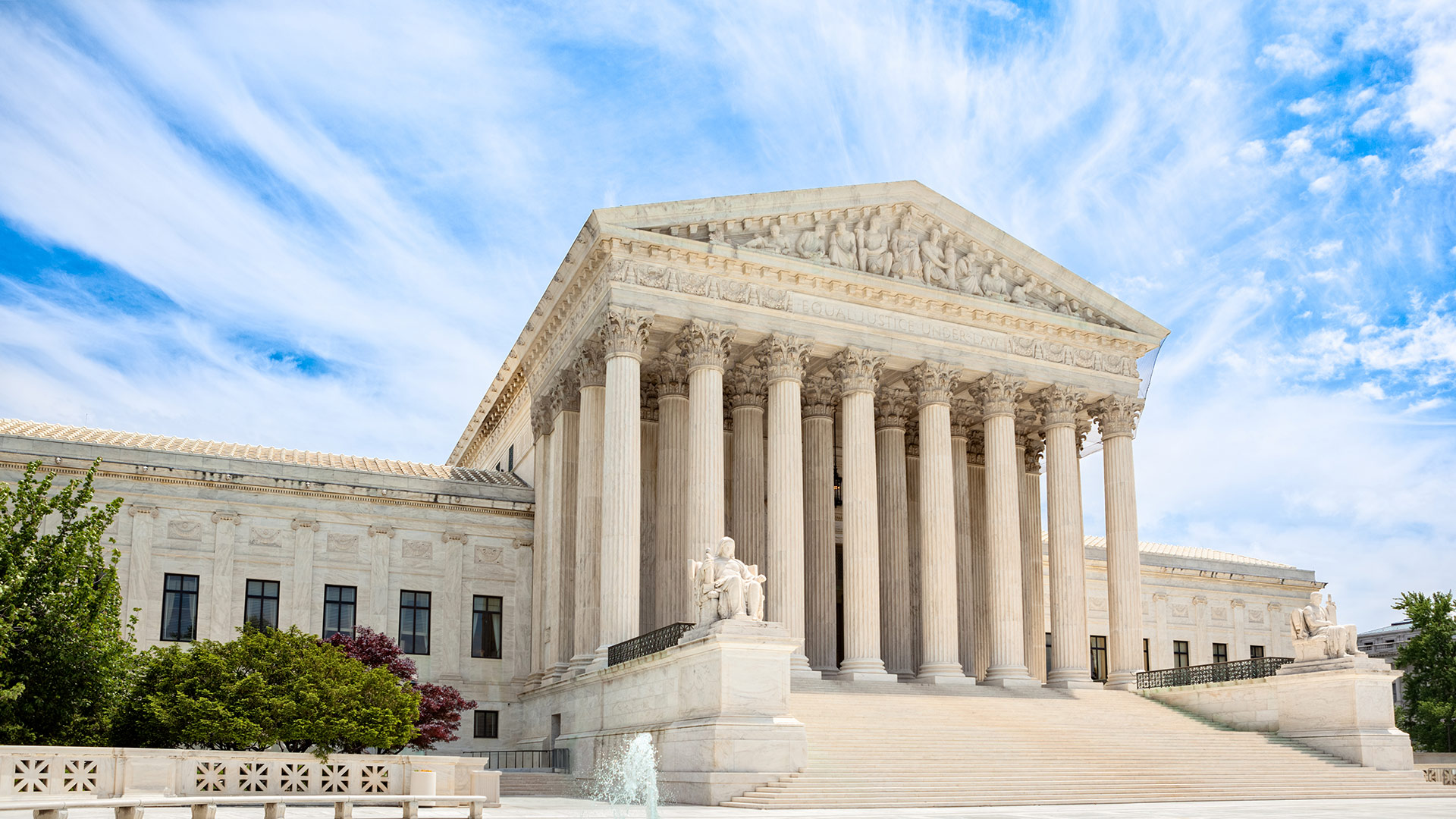Publication
The robots are coming … is insurance ready for AI?
The insurance industry is founded on predicting, as accurately as possible, whether or not a risk will materialise in a fast-moving competitive environment.


United States | Publication | March 2022
The United States Supreme Court heard oral argument today in Viking River Cruises, Inc. v. Moriana—a case that is of keen interest to many California employers. The issue before the Court is whether an individual employment arbitration agreement may bar representative actions under the California Private Attorneys General Act, or PAGA. Specifically, the question presented is “whether the Federal Arbitration Act requires enforcement of a bilateral arbitration agreement providing that an employee cannot raise representative claims, including under PAGA.” Although predicting the outcome of a case from oral argument is not foolproof, the argument should leave employers optimistic.
PAGA allows a single employee who alleges a state labor code violation to sue on behalf of many (even tens of thousands) employees of an employer for the same and other alleged violations. Civil penalties of US$100 per employee for initial violations and US$200 per employee for subsequent violations can stack up into staggering sums. While 75 percent of PAGA penalties awarded go to the State (leaving 25 percent to the employees), the plaintiff may recover attorneys' fees as a percentage of the overall amount and not simply the employee amount.
PAGA cases have proliferated since 2014 when the California Supreme Court ruled in a case called Iskanian that claims for PAGA penalties were not subject to class action waivers in arbitration agreements. This exclusion was based in part on the theory that PAGA plaintiffs represent the state as a private attorney general, and the state is not a party to the arbitration agreement. During Wednesday's argument, this theory came under close scrutiny.
The employer argued that it should prevail under the Supreme Court's precedent in Concepcion, Epic Systems, and Lamps Plus—which applied the FAA in the context of class actions and FLSA collective actions—and counsel emphasized that the employee had not asked the Court to revisit those decisions. Perhaps in light of the precedent, the more conservative justices were largely quiet during oral argument. This was not a hot bench.
Justice Kagan asked why the Court shouldn't defer to California's decision to use private parties to enforce its labor laws. She questioned whether Congress, in enacting the FAA in 1925, would have understood it would be precluding a state's exercise of sovereignty in this way. The employer's counsel noted that California made a similar decision with respect to class actions in the Concepcion matter, and that did not prevent the Court from finding against California in that case. He also argued it spoke volumes that no other state filed an amicus brief defending PAGA. In his only question of the morning, Justice Kavanaugh asked the employee's counsel if California was an outlier. Counsel agreed that California is the only state that has this mechanism for enforcing its labor laws.
Counsel for the employee described California's decision in Iskanian as articulating an anti-waiver rule, i.e. that a predispute agreement to waive claims is unenforceable. According to this argument, a PAGA claim is by its essence an aggregation of employees and their penalties, and an arbitration agreement that precludes a PAGA representative action essentially waives rights under the PAGA. The employer countered that there was no waiver because the employee could bring her own labor code claim in arbitration. She simply was foreclosed from injecting the facts and circumstances of other labor code violations and other employees into this case.
Many of the questions revolved around whether PAGA is a procedural mechanism for aggregating claims or is a substantive claim under California law. The employer noted that the California Supreme Court has described PAGA as a procedural mechanism for enforcing labor code violations. Justice Barrett asked whether the justices were bound by that determination under the Erie doctrine or if federal law controlled. Both counsel agreed that the federal law of the FAA controlled. Their difference of opinion is on whether the FAA preempts the Iskanian rule.
Justice Kagan expressed concern that an employer win in this case could jeopardize efforts to arbitrate other representative actions such as shareholder derivative suits and qui tam actions. Employer's counsel pointed out that if a ruling against PAGA representative actions would threaten either of those actions, you would have expected to have Delaware (for the shareholder suits) and the United States (for qui tam actions) file briefs in support of California in this case. The fact that they did not just underscores the anomalous nature of California's law.
In the end, employer's counsel addressed what he called the practicalities of a PAGA representative action. The employee in this case had a single claim regarding the timing of her final paycheck which "could be done in an hour" in arbitration. Instead, she brought nine other claims on behalf of other employees, with class-wide discovery, which would require the use of a claims administrator to pay out claims. This is entirely incompatible with her agreement to individualized arbitration with her employer.
A decision is expected in June 2022.
Publication
The insurance industry is founded on predicting, as accurately as possible, whether or not a risk will materialise in a fast-moving competitive environment.
Subscribe and stay up to date with the latest legal news, information and events . . .
© Norton Rose Fulbright LLP 2023